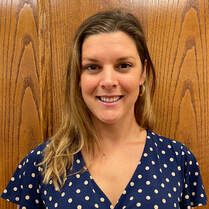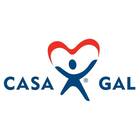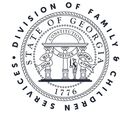|
Initially, I did not seek out Savannah Court Appointed Special Advocates (CASA). In a stroke of luck, CASA came to my email inbox. I started receiving the monthly Savannah CASA newsletter in 2020. I am sure I somehow signed up via community engagement on social media, but I had no idea what it was when I started receiving the newsletters. Having experienced living in a shelter for a brief period as a teenager, the program immediately spoke to me. I would read the monthly newsletters for over a year and toy with the idea of becoming a CASA volunteer. One night in the Fall of 2021, I researched the process and filled out the application. There was a class to start at the beginning of 2022, but it was unfortunately full. I carried on and hoped to hear something in the future. That moment came in the Spring of 2022; the training was a bit more intense than I had anticipated and the role of a CASA was a lot more than I had imagined, but with every session I would feel with more certainty that this was the perfect role for me. Advocacy has always come natural to me; I have been doing it long before I even knew what the word advocate meant. There is a sense of duty that comes with advocating, especially when doing so for those that cannot advocate for themselves. I understand the frustration of being powerless, of not being listened to, and not having a voice to change something for the better. Due to that empathy, I strive to connect, observe, and listen to the children on my case so that I may be the best advocate for them while they navigate through this traumatic journey of being in the foster care system. I was assigned my case a few days after swear-in, it was two brothers, 13 and 6 years old. They had a 12-year-old sister who was living with fictive kin and not assigned to me initially. Since I have been their CASA, they have been placed in three different foster homes and I have also become the CASA to their sister who is now in DFCS custody. I have been blessed with a Guardian Ad Litem (GAL) that is also assigned to all three children and together we have created a very strong bond with the children and have advocated for them fiercely. Together, we have had to make some tough recommendations often conflicting with those of Division of Family and Children Services (DFCS) case workers and foster placement agencies. I have faced several challenges in overcoming communication barriers with resource personnel and foster parents. I saw firsthand the importance of being a CASA. It is our role to speak up to the court and let them hear the children’s concerns. Had the children not had a CASA and GAL to listen to them and report the things they were experiencing at their foster placements, they likely would not have been removed and placed in a safer, more caring placement that met their needs. Being a CASA volunteer honestly has been a lot more than I anticipated. I am heavily involved and invested in my kids, I want them to know they are not alone, and they have someone in their corner always. All the time and efforts spent are rewarding, because I see my actions are making a difference and helping the children that I have become so close with. I know they will likely be in care for some time, but I will keep working towards reunification and encouraging those involved with the case to ensure the children’s best interests are being served, and when they’re not, I’ll be there to advocate for them.
0 Comments
|
Brightside
|
Brightside Advocacy761 Wheaton Street, 5th Floor
Savannah, GA 31401 |
Links |
Contact Us |
FUNDING PROVIDED BY:
Website by FreshWorks Media



 RSS Feed
RSS Feed








